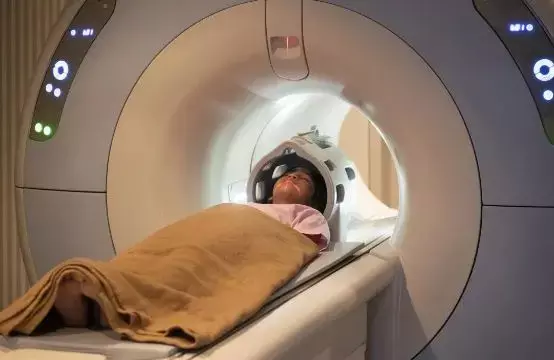- Home
- Medical news & Guidelines
- Anesthesiology
- Cardiology and CTVS
- Critical Care
- Dentistry
- Dermatology
- Diabetes and Endocrinology
- ENT
- Gastroenterology
- Medicine
- Nephrology
- Neurology
- Obstretics-Gynaecology
- Oncology
- Ophthalmology
- Orthopaedics
- Pediatrics-Neonatology
- Psychiatry
- Pulmonology
- Radiology
- Surgery
- Urology
- Laboratory Medicine
- Diet
- Nursing
- Paramedical
- Physiotherapy
- Health news
- Fact Check
- Bone Health Fact Check
- Brain Health Fact Check
- Cancer Related Fact Check
- Child Care Fact Check
- Dental and oral health fact check
- Diabetes and metabolic health fact check
- Diet and Nutrition Fact Check
- Eye and ENT Care Fact Check
- Fitness fact check
- Gut health fact check
- Heart health fact check
- Kidney health fact check
- Medical education fact check
- Men's health fact check
- Respiratory fact check
- Skin and hair care fact check
- Vaccine and Immunization fact check
- Women's health fact check
- AYUSH
- State News
- Andaman and Nicobar Islands
- Andhra Pradesh
- Arunachal Pradesh
- Assam
- Bihar
- Chandigarh
- Chattisgarh
- Dadra and Nagar Haveli
- Daman and Diu
- Delhi
- Goa
- Gujarat
- Haryana
- Himachal Pradesh
- Jammu & Kashmir
- Jharkhand
- Karnataka
- Kerala
- Ladakh
- Lakshadweep
- Madhya Pradesh
- Maharashtra
- Manipur
- Meghalaya
- Mizoram
- Nagaland
- Odisha
- Puducherry
- Punjab
- Rajasthan
- Sikkim
- Tamil Nadu
- Telangana
- Tripura
- Uttar Pradesh
- Uttrakhand
- West Bengal
- Medical Education
- Industry
Incidental findings in pediatric brain MRIs common, though not serious;JAMA

Incidental findings in brain MRI and findings with potential clinical significance are both common in the general pediatric population, suggests the findings of a recently published study in JAMA Neurology.
The research team further highlighted that "Incidental findings noted on brain magnetic resonance imaging appear to be common and 4% of children have incidental findings that prompt further clinical evaluation; these estimates of incidental findings' prevalence and significance may provide context for interpreting similar findings on clinical neuroimaging and inform discussions about the appropriateness of screening for brain magnetic resonance imaging findings in the research setting."
Incidental findings (IFs) are unexpected abnormalities discovered during imaging and can range from normal anatomic variants to findings requiring urgent medical intervention. In the case of brain magnetic resonance imaging (MRI), reliable data about the prevalence and significance of IFs in the general population are limited, making it difficult to anticipate, communicate, and manage these findings.
To bridge this gap, researchers sought to carry out a study to determine the overall prevalence of IFs in brain MRI in the nonclinical pediatric population as well as the rates of specific findings and findings for which clinical referral is recommended.
This cohort study was based on the April 2019 release of baseline data from 11 810 children aged 9 to 10 years who were enrolled and completed baseline neuroimaging in the Adolescent Brain Cognitive Development (ABCD) study, the largest US population-based longitudinal observational study of brain development and child health, between September 1, 2016, and November 15, 2018.
Participants were enrolled at 21 sites across the US designed to mirror the demographic characteristics of the US population. Baseline structural MRIs were centrally reviewed for IFs by board-certified neuroradiologists and findings were described and categorized (category 1, no abnormal findings; 2, no referral recommended; 3; consider referral; and 4, consider immediate referral). Children were enrolled through a broad school-based recruitment process in which all children of eligible age at selected schools were invited to participate. Exclusion criteria were severe sensory, intellectual, medical, or neurologic disorders that would preclude or interfere with study participation. During the enrollment process, demographic data were monitored to ensure that the study met targets for sex, socioeconomic, ethnic, and racial diversity. Data were analyzed from March 15, 2018, to November 20, 2020.
Main Outcomes assessed were percentage of children with IFs in each category and prevalence of specific IFs.
Data analysis revealed some interesting facts.
- A total of 11 679 children (52.1% boys, mean [SD] age, 9.9 [0.62] years) had interpretable baseline structural MRI results.
- Of these, 2464 participants (21.1%) had IFs, including 2013 children (17.2%) assigned to category 2, 431 (3.7%) assigned to category 3, and 20 (0.2%) assigned to category 4.
- Overall rates of IFs did not differ significantly between singleton and twin gestations or between monozygotic and dizygotic twins, but heritability analysis showed heritability for the presence or absence of IFs (h2 = 0.260; 95% CI, 0.135-0.387).
For the full article follow the link: 10.1001/jamaneurol.2021.0306
Primary source:JAMA Neurology
Dr Satabdi Saha (BDS, MDS) is a practicing pediatric dentist with a keen interest in new medical researches and updates. She has completed her BDS from North Bengal Dental College ,Darjeeling. Then she went on to secure an ALL INDIA NEET PG rank and completed her MDS from the first dental college in the country – Dr R. Ahmed Dental College and Hospital. She is currently attached to The Marwari Relief Society Hospital as a consultant along with private practice of 2 years. She has published scientific papers in national and international journals. Her strong passion of sharing knowledge with the medical fraternity has motivated her to be a part of Medical Dialogues.
Dr Kamal Kant Kohli-MBBS, DTCD- a chest specialist with more than 30 years of practice and a flair for writing clinical articles, Dr Kamal Kant Kohli joined Medical Dialogues as a Chief Editor of Medical News. Besides writing articles, as an editor, he proofreads and verifies all the medical content published on Medical Dialogues including those coming from journals, studies,medical conferences,guidelines etc. Email: drkohli@medicaldialogues.in. Contact no. 011-43720751


